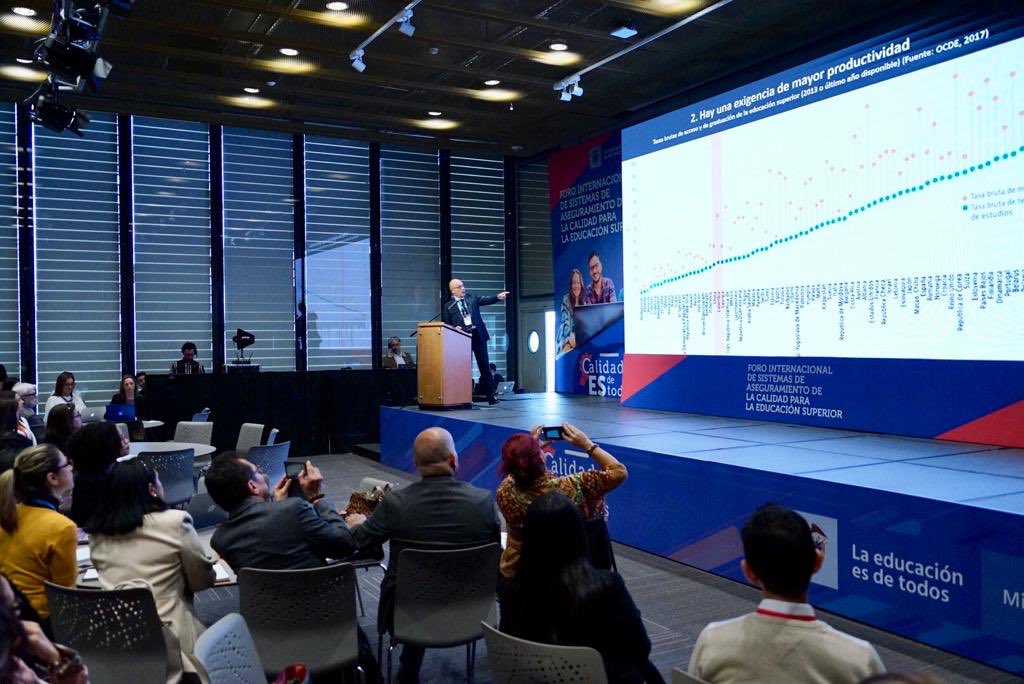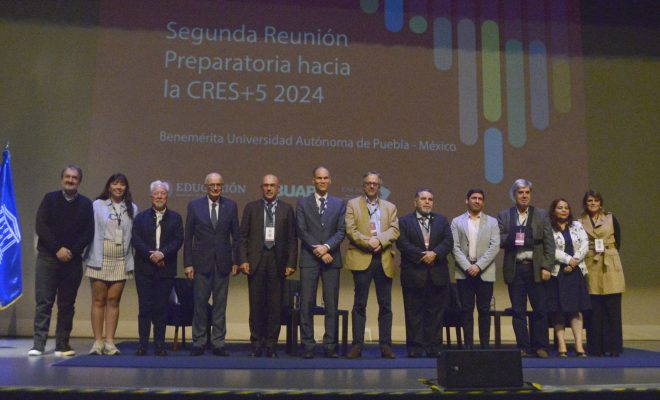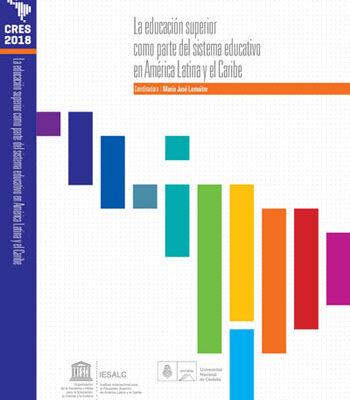IESALC presents the conclusions of its report on international trends on the evaluation of learning in HE


On August 15 and 16, 2019, the International Forum on Quality Assurance Systems for Higher Education was held, “a space to strengthen the system, assess its capabilities and the student learning processes and to recognize and promote institutions and their academic programs ”, as stated in the call issued by the Ministry of National Education of Colombia.
Inaugurated by the Minister of National Education María Victoria Angulo, the meeting, which was initially constituted as a forum for collective analysis and learning, and “an open dialogue for quality in the higher education”, was attended by representatives of higher education in Latin America. Luis Fernando Pérez, Deputy Minister of Education, and Hernán Burdiles, president of the Comisión Nacional de Acreditación-CNA (National Accreditation Commission) of Chile, also participated in the opening session.
Conferences and panels addressing quality assurance systems and academic innovations in Colombia and the world were held during the two days. The structure of the meeting, organized by the Ministry of Education of Colombia, also included parallel tables in which higher education institutions had the opportunity to set forth 13 good practices, from 11 institutions, promoting the development of policies and lines of work that encourage quality assurance in higher education. The interaction of HEI and the socialization of strategies to strengthen internal quality assurance systems were also important issues.
For the IESALC, this scenario of dialogue on quality assurance “allows higher education institutions in Colombia to better diagnose how and what is learned in order to achieve real improvements in the training processes,” as stated in the note published by the Ministry of Education of Colombia.
The second day of the Forum began with the participation of Dr. Francesc Pedró , director of the UNESCO International Institute for Higher Education in Latin America and the Caribbean – IESALC, with the conference “Institutional Transformation of Higher Education”, in which he presented a comparative study of the teaching and learning conditions of higher education in the global sphere as well as the way in which changes in the educational environment and social contexts impact student learning outcomes.
In his presentation, Pedró delved into the challenges of education in the global sphere, including the importance of overcoming the programmatic content of study in order to develop skills in the students, which implies to “Rethink study programs and establish common objectives for all graduates.”
As part of the challenges to come, the IESALC recommends the improvement of teaching quality (more quantity, greater diversity, less demands); the use of e-learning not exclusively for at-distance universities; the evaluation of the results; attention to the correlation between graduates and the labor market; the promotion of quality assurance based on evidence and oriented towards improvement; and making the sector’s external regulation and self-regulation easier, among other aspects.
Summarizing, the IESALC presentation, based on the conclusions of its report on international trends in the evaluation of learning in higher education, recommends: 1. Rewrite curricula with emphasis on competencies; 2. Develop improvement plans; 3. Have an institutional qualification policy; 4. Take advantage of technology: dashboards and learning analytics; and 5. Do not obviate measurement difficulties.
For more detail access the presentation La evaluación basada en los resultados de aprendizaje en la educación superior. Tendencias internacionales (Evaluation based on learning outcomes in higher education. International Trends).
RELATED ITEMS








